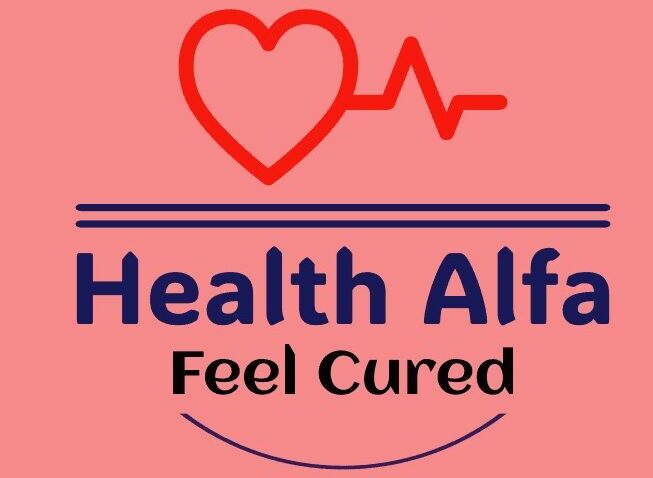
Health insurance is one of the best ways to plan for finances and one’s well-being. It acts as a safety net so that when people and their families need health care, the costs will not financially ruin them.
Table of Contents
In today’s world, where healthcare costs for sudden illnesses or accidents may amount to astronomical sums, proper health insurance has never been so important. Complexities in it -private health insurance, medical insurance, or even a variety of health insurance plans are things you probably need to know when looking forward to making appropriate decisions for your health coverage.
What is Health Insurance?
Health insurance is a private or, more often than not, a group contract given that an insurance company is required to pay part of the health care costs of the insured in exchange for regular premium payments. These costs can include doctor visits, hospital stays, surgeries, prescription medications, and preventive care, depending on the terms of the policy.
This facility of insurance serves the main purpose of bringing about a situation in which the strong financial burden resulting from medical care would be manageable. Without this insurance, some medical service costs may include even simple, costly treatments; therefore, the price rises when serious cases of illness or injury occur.
Types of Health Insurance
There are many forms of this facility, each tailored to the different needs of individuals and families. It is very important to understand various types of health insurance for one to make a proper selection.

1. Private Health Insurance
Private health insurance is a class of coverage given through private entities, such as insurance companies or employers, among other privately run organizations. Individuals may obtain private health plans directly from an insurance company or through the concerned Marketplace. Private health insurance is not as strict as public ones, since there is more variability in the plans, with differing levels of coverage.
There are several varieties as far as private health insurance plans go. These include:
Health Maintenance Organization
HMOs require a member to have a primary physician from whom referrals are obtained when one needs to visit specialists. These kinds of plans usually have lower premiums, but majorly require the members to seek a network of health providers.
Preferred Provider Organization
PPOs are a little more flexible and allow members to see any healthcare provider without needing a referral. However, utilizing in-network providers generally leads to lower out-of-pocket costs.
EPO
Like HMOs, except referrals to specialists are not necessary. Members must obtain all non-emergency care from network providers.
POS
POS plans to combine elements of HMO and PPO plans. Members must select a primary care physician and have referrals to see specialists, but members may access out-of-network providers at a higher cost to them.
2. Public Health Insurance
Governmental programs include Medicare, Medicaid, and Children’s Health Insurance. These programs insure specific populations: the elderly, the indigent, and children.
Medicare
Medicare is a federal program that primarily provides health coverage for people who are 65 or older and for some younger people with disabilities. Coverage in Medicare is divided into different parts: the insurance for hospital coverage, Part A; medical services provided at a doctor’s office or in an outpatient setting, Part B; and prescription drugs, Part D.
Medicaid
Medicaid is a State and Federal partnership health program designed to pay for some or all of the health care costs for many low-income individuals who cannot afford such insurance for one reason or another or are not eligible for this service. Eligibility varies from state to state, generally; Medicaid covers a wide range of medical services.
CHIP
Children’s Health Insurance Program-a joint state/federal health insurance program that covers kids whose family incomes are in between the state Medicaid eligibility and too low to buy private insurance in terms of health.
Why Health Insurance is Important

One thing that can be classed as very important, indeed quite indispensable, is health insurance. Some critical reasons why a person needs such insurance are:
1. Peace of Mind
Knowing that you have health insurance keeps your mind at rest. Due to the expensive nature of medical care and treatment, having such insurance ensures that you get good medical attention anytime you require it since you have nothing to worry about concerning the costs of treatments.
2. Financial Protection
Sometimes medical bills may be overwhelming when a serious case of disease or accident strikes. This facility of insurance mediates between you and the medical bills accrued to avoid financial ruin. In addition, not having insurance may make you liable to pay in full for all medical treatments provided, which can be quite financially disastrous.
3. Quality Access to Health Care
Health insurance opens up a network of health providers who can lead to timely and appropriate care. With such insurance, regular checkups, preventive care, and early detection of health issues will be more affordable and, thus, easier to access, hence generally leading to better health outcomes.
4. Preventive Services
Many of these preventive services, such as vaccinations, screenings, and wellness visits, are free to you and usually covered under most health plans. These services are very important because it is much easier to prevent health problems before they occur or detect them while they are easier to treat.
How to Select the Correct Health Insurance Plan
With so many plans in the market, it is sometimes quite tricky to find the appropriate health plan. Following are some of those factors that you must consider when comparing such insurance plans:

1. Coverage Requirements
Assess your needs and those of your family. If you have a chronic condition or happen to be the type of person who goes in for doctor visits often, then you will want to see a plan that covers these kinds of services more comprehensively. If you are a generally healthy person, then you’re better off with a plan with lower premiums but higher deductibles.
2. Costs
Second, know how much all of those plans will cost- premiums, deductibles, copayments, and coinsurance. You’ve got to weigh the plan’s cost against the coverage it provides. Generally speaking, the lower your premium, the higher your out-of-pocket costs when you get care.
3. Network of Providers
Check out the network of healthcare providers under each plan. If your doctor, specialist, or hospital you see is not in-network, then it usually costs a lot more to go out-of-network.
4. Prescription Drug Coverage
If you’re currently on prescription medication, then you want to check the formulary of that plan and make sure that your prescription medications are covered. Some may have restrictions or require prior authorizations as well.
5. Additional Benefits
Other big differences with some health insurance plans include additional benefits for dental, vision, or mental health-that are included. It’s smart to take into consideration whether those benefits mean anything to you and whether they are part of the plan.
Understanding Health Insurance Terminology
This facility of insurance can be hard to understand, mostly when you do not know some of the terminologies. There are some important terms which are very important to know:
Premium
This is the amount paid, usually every month, to keep your health insurance.
Deductible
The mechanism of insurance can be so confusing, especially when terms such as “deductible” are used. Well, what is a deductible in health insurance? A deductible refers to an amount that you must pay from your pocket for health care services provided to you before your insurance plan kicks off.
For instance, your health insurance policy may contain a $1,000 deductible; you are responsible for the first $1,000 of medical expenses. After you have paid the deductible amount, you will then be required to pay other things such as copays and coinsurance. This is an amount paid out of pocket for health care services before insurance kicks in.
Copayment, Copay
A fixed dollar amount you pay for a specific healthcare service, such as when you see a doctor is usually due at the time of visit.

Coinsurance
Your portion of the medical bills after you have met your deductible.
Out-of-Pocket Maximum
The most you’ll pay out-of-pocket for covered health care services in a plan year. After you meet this you are only responsible for 0% of covered services because insurance pays 100%.
Health insurance for self employed
Unfortunately, navigating such insurance can be very challenging for a self-employed individual, but it is an important investment to protect one’s financial and physical well-being. Whereas typical employees have employer-sponsored health plans available for them, the self-employed do not, which, out of necessity, compels them to seek out individual insurance for health.
The Health Insurance Marketplace can sell health insurance for self employed, where a comparison in plans can be made based on coverage, premiums, and network providers. Many self-employed individuals consider HDHPs with a linked Health Savings Account to manage their costs while building savings for future medical expenses.
Your need for health care is weighed with your budget to come up with an appropriate choice. The right health insurance for self employed protects them from unexpected medical bills and enables them to access quality health care.
Health insurance innovations
Health insurance innovations have revolutionized access and management in healthcare. For instance, there is increased growth in telemedicine; a policyholder may consult a health professional even from a distance. This innovation opens up more avenues of accessibility and cuts costs and time wasted for non-emergency care.
Wearable technology is another exciting industry development, along with the inclusion of such technology in health insurance plans. Examples include wearable devices, like fitness trackers, that record your health metrics and will further encourage healthier lifestyle options-incentivizing participants with potentially lower insurance premiums.
Insurance carriers are leveraging big data and artificial intelligence to personalize health insurance policies more and more, tailoring coverage and pricing to individual subscriber needs and risk profiles.

Furthermore, the value-based care model is trending nowadays, wherein the stress is not on the number of services provided but on the quality of care. The aim is to improve patient outcomes by deriving more value for money spent, which therefore benefits both insurers and policyholders. These innovations in health insurance open avenues toward finding more efficient, accessible, and personalized healthcare solutions.
Conclusion
Health insurance is a crucial part of any good financial/medical plan. No matter if it is private health insurance or a public health insurance program, the appropriate coverage can offer financial security, access to good care, and a sense of security.
While you are wading your way through the health insurance jungle, be sure to evaluate your needs, do some research on the different health insurance plans, and weigh the costs and benefits of each plan. Through wise choices, you can guarantee that you and your family will be taken care of and receive the necessary care when it counts the most.
Disclaimer
In this article, information related to a particular topic has been collected from various sources, the purpose of which is only to increase the knowledge of the readers and it does not confirm the existence of any disease and its treatment. Health Alpha does not take any responsibility for any such information.
Views: 0













